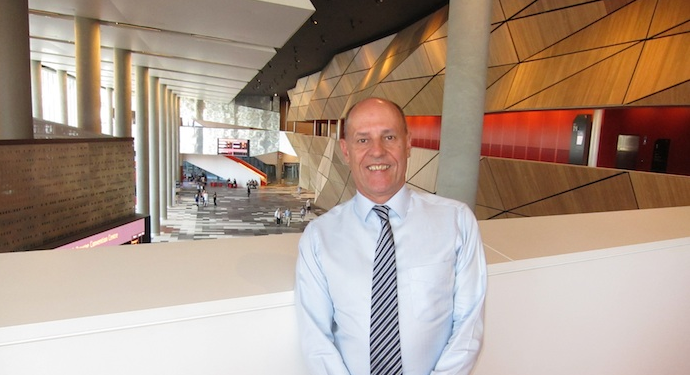PH: It stands for technical and further education, so the equivalent would be the further education sector in the UK. What defines TAFE in Australia, is that the institutes are owned by their respective state or territory governments.
The PIE: What’s your role at TAFE Directors Australia?
PH: We are what we call in Australia a peak body, a bit like TVET in the UK. We represent our members’ interests primarily at a national level about government policy and funding. And we run conferences and have a small business development role where we manage some projects for our members. My role is on the international engagements, so my focus is on building up networks internationally and to create more opportunities for our members.
The PIE: And how much international recruitment do TAFEs do?
PH: It depends a lot on the institution; some of them are really active. We’ve got 61 TAFE institutes in Australia and about 35 of those would be involved in international education. But we’ve got a relatively small number of international students. Around about 12,000 or 15,000 international students which works out at less than 5%. But, we’ve got close to 60,000 students in other countries studying at TAFE or as part of a twinning partnership with a local institution that offers both an Australian qualification and a local qualification.
“We’ve got close to 60,000 students in other countries studying at TAFE or as part of a twinning partnership with a local institution”
The PIE: How does the financial model work in twinning partnerships?
PH: Generally it works that the first couple of years are fairly expensive for the partner in the other country because they have to cover the costs of our teachers going over and delivering the majority of the courses as well as customising the resources. But then in the second year onwards our role becomes primarily on quality assurance, which involves maybe one or two trips a year. Then the courses are actually delivered by local teachers that have been trained. After that we take a percentage per student fee. It’s almost like franchising but we maintain strict quality assurance procedures around that.
The PIE: How did that part of the industry develop?
PH: Some of the earliest partnerships started almost 20 years ago with China where there was interest in the Australian vocational training system. We broke a lot of ground in establishing industry skills councils and coming up with policies and frame works that gave national qualifications.
“When our minister for tertiary education goes overseas and talks to the people in China or Indonesia or Singapore all they want to talk about is skills, not higher education”
The PIE: Do you think there is a growing interest in vocational education as an alternative to tertiary education?
PH: When our minister for tertiary education goes overseas with a delegation of vice-chancellors and talks to the people in China or Indonesia or Singapore all they want to talk about is skills, not higher education. Their universities are well established, they’ve got partnerships around the world, they’ve got their alliances, they’ve got teacher and student exchanges. The one area that they are really missing on is highly developed vocational skills that will help people support their emerging markets. We found the same thing in Africa. So we think there is huge potential in many countries and I think Australia is really well placed as is the UK, Germany, Canada and New Zealand.
The PIE: Where does TAFE sit in Australia’s AUS$14 billion international education revenue?
PH: Really small. We’ve only got about 5% of that but we haven’t quantified the offshore business. Many of our industries both public and private keep very quiet about that in terms of commercial confidence but some of the contracts that have been won have been in the multimillion-dollar areas.
The PIE: Are there growth opportunities?
Related articles




Peter!
Need to catch up on chordal matters within the TAFE structures.